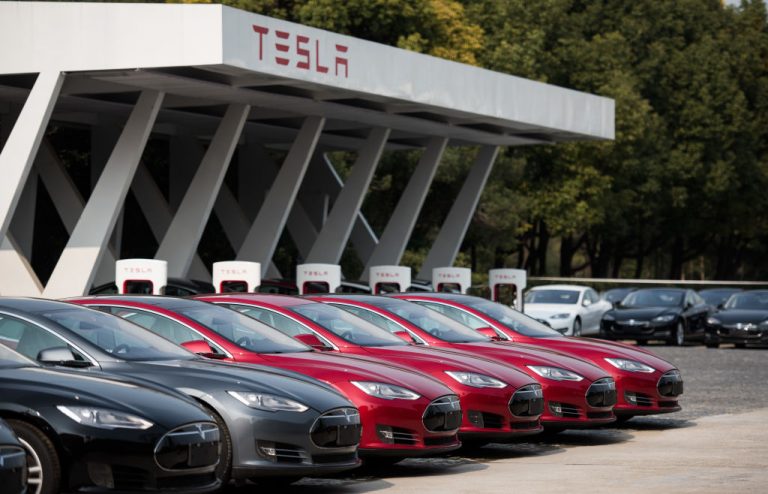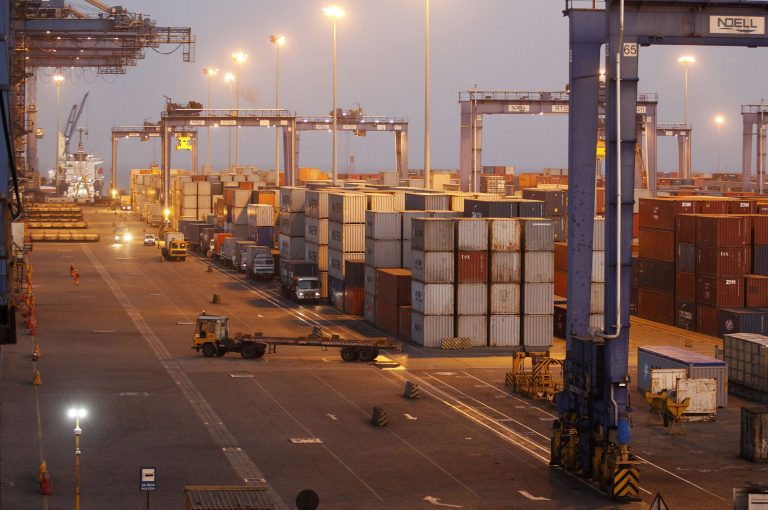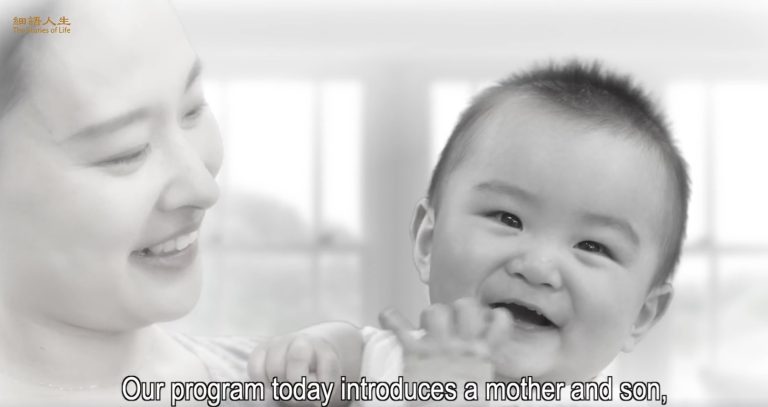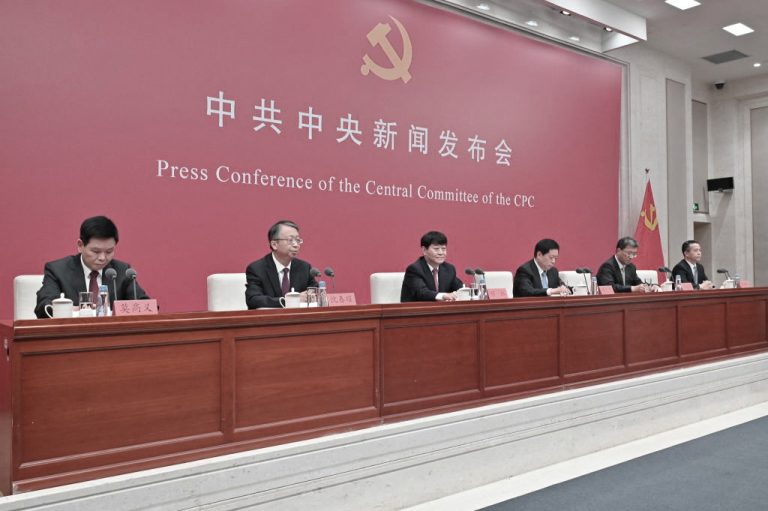As China continues implementing citywide lockdowns in Shanghai and Beijing in order to uphold its “zero-COVID” policy, car sales saw a record decline last month as the country’s unbending COVID protocols take a severe toll on its economy.
Particularly hard hit was electric vehicle (EV) maker Tesla. The company reported selling only 1,512 vehicles in mainland China in April, down a staggering 98 percent from March, according to data from the China Passenger Car Association (CPCA).
RELATED READING:
- Elon Musk Faces Uphill Battle Implementing Change at Twitter Despite Takeover
- Years of Surging Lithium Prices Show Signs of Turbulence as Electric Vehicle Makers Adapt
- Chinese Authorities to Locked Down Shanghai Residents: ‘Stop Asking Why,’ Beijing Introduces Daily Mass Testing
Tesla’s production in the country also slid 81 percent, producing 10,757 vehicles in April, compared to 55,462 in the previous month, underscoring the heavy hit that China’s prolonged lockdowns are having on consumer spending.
The plunge comes as tens of millions of people in at least 31 cities across China have been subjected to some degree of lockdown for several weeks, causing massive supply chain disruptions in the world’s second largest economy.
Tesla’s Shanghai factory halts production
Tesla’s Shanghai plant has again been halted due to recurring problems securing parts for its Model 3 vehicles, according to an internal memo obtained by Reuters. For the month of April, the company did not export any Shanghai-made vehicles in April, compared to 60 exported in the previous month.
Success
You are now signed up for our newsletter
Success
Check your email to complete sign up
After the Shanghai government reversed the decision to loosen COVID restrictions on April 21, the company was again forced to shut down its “Gigafactory” in Shanghai, and is now facing continuous issues with suppliers. The factory has remained closed for the past three weeks, Reuters reported.
Although the company did not respond to multiple requests for comment, Tesla CEO Elon Musk tried to downplay concerns regarding China’s lockdowns.
“I had conversations with the Chinese government in recent days and it’s clear that the lockdowns are being lifted rapidly,” Musk said on May 10 during a virtual car conference organized by the Financial Times.
“So I would not expect this to be a significant issue in the coming weeks,” he said.
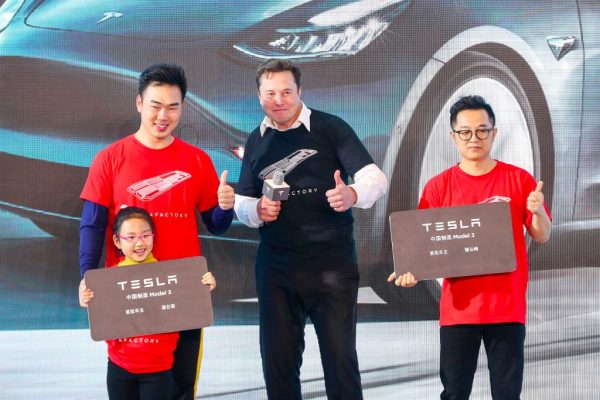
‘Consumers’ willingness to buy a car has dropped’
Last year, Tesla’s Gigafactory in Shanghai exported 484,130 cars, nearly half of the company’s 936,000 global deliveries — a stark contrast to its current decrease in sales.
In March, Tesla was the top seller of electric vehicles in the country, delivering 65,184 cars from its Shanghai factory. That number was up 15 percent from February, as consumer demand for EVs remained strong in the Chinese market even throughout the pandemic.
And it’s not just Tesla that has been severely impacted by the lockdowns. Japanese automaker, Nissan Motor (NSANY), reported on May 9 that its China sales were down 46 percent in April compared to a year ago.
“We witnessed a continued impact on vehicle production and sales in April due to ongoing semiconductor shortages, supply chain disruptions, and lockdown in key regions and cities from the spread of COVID-19,” said Shohei Yamazaki, senior vice president of Nissan and chairman of the company’s management committee for China’s market.
The industry group also acknowledged that there has been a “significant impact” on supply chains in Shanghai and Changchun — the two cities are major manufacturing bases for key parts in China’s auto industry.
In Shanghai, five major auto manufacturers recorded an average 75 percent drop in production in April, compared to March. In northeastern Changchun, big automakers saw their production fall 54 percent during the same period.
“The purchasing power on the car market has been damaged, and consumers’ willingness to buy a car has dropped,” the CPCA said on May 10.
International companies hit hard
Similarly, several major companies, including Starbucks, Apple, Estee Lauder, and other U.S.-listed companies warned in quarterly earnings reports that China’s COVID protocols were severely impacting sales.
READ MORE:
- US Firms Report Huge Dip in China Sales as Beijing Continues ‘Zero-COVID’ Measures
- Consumer Electronics Demand Down ‘Especially in China’ Says TSMC Chief
According to Bank of America’s proprietary model, S&P 500 companies in China have fallen to the lowest since the second quarter of 2020. Starbucks and Apple both reported a decrease in same-store sales of over 20 percent — far worse than the 0.2 percent decrease analysts expected, according to a report by FactSet.
Starbucks said its in-person sales had gone down by 23 percent since the lockdowns in Shanghai began.
Demand for EVs expected to pick up
Despite the current dip in sales however, the association said it expects demand to pick up in May and June, as the “peak of the [COVID outbreak] has passed and supply chains are gradually returning to normal.”
“Under the current environment, self-driving travel has become the first choice. Affected by high oil prices, more people will choose to buy new energy vehicles,” the association said, adding that it estimates electric vehicles’ sales will rebound strongly in the second and third quarters of this year.



